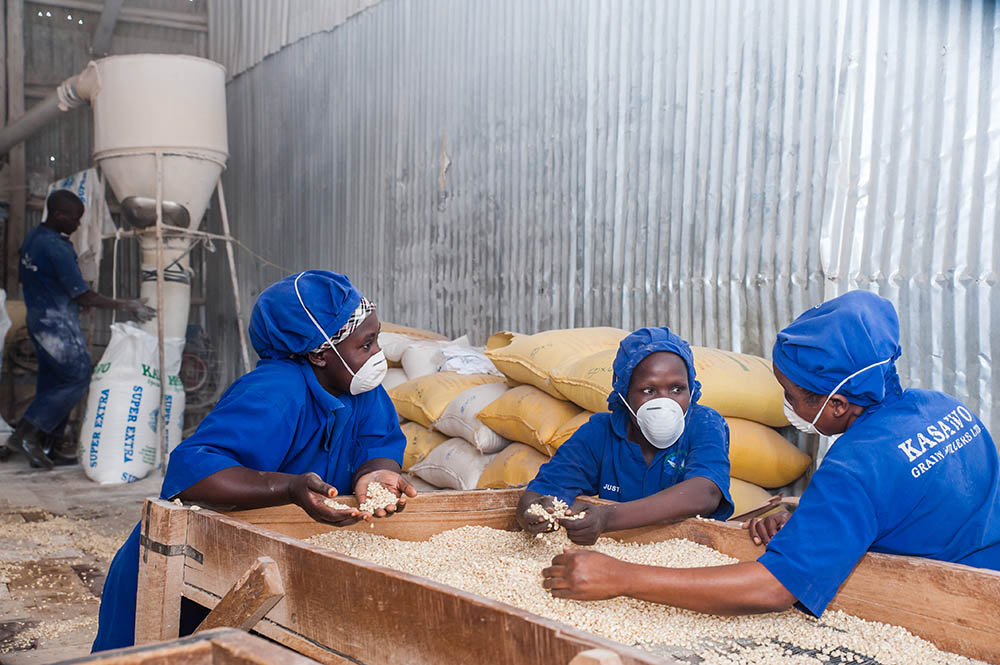Over the past six years, SPRING/Uganda has worked in partnership with government, the private sector, and other stakeholders to support national food fortification. SPRING distributed 2,000 factsheets, 10,000 posters, and 40,000 cutouts resembling fortified products on the market to shops and supermarkets. The material had information on the benefits of food fortification. SPRING/Uganda also organized a radio campaign to inform the public about how to identify fortified products.
For some stakeholders, five manuals and two training curricula were produced to aid various fortification processes including inspection of industries and addition of fortificants.
SPRING is also campaigning to encourage schools to buy fortified flour to increase the nutritious value of their food, which will help prevent and control anemia among schoolchildren, including adolescent girls.
Food fortification involves boosting certain foods’ nutritional value through the addition of micronutrients like vitamin A, zinc, iodine and iron. According to Uganda’s National Fortification Guidelines, all industries that produce wheat flour, fats, and cooking oil must fortify their products. Industries with daily maize flour production of 20 metric tons or more are also required to fortify their flour.
The photos below depict some of SPRING’s work supporting food fortification.










